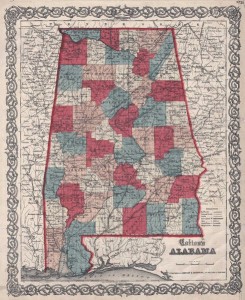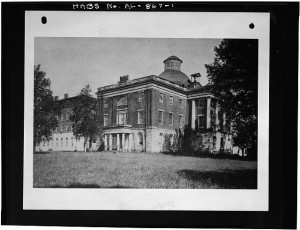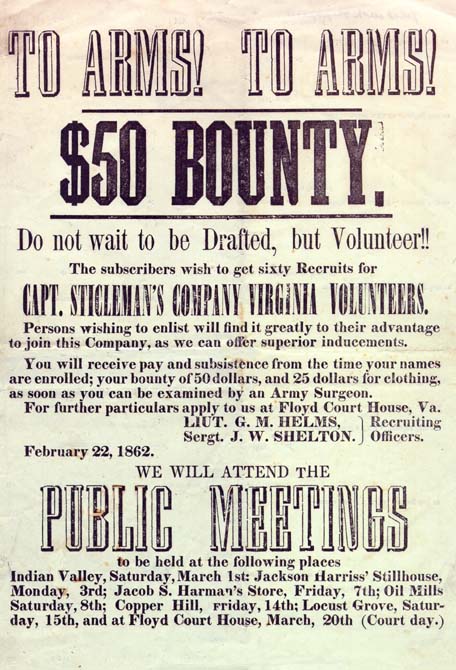With Testaments and a Sharp’s Rifle
From the Richmond Daily Dispatch March 13, 1862:
Patriotic letter from an Alabama Clergy-man.
–The Rev. O. R. Blue, of Tuscaloosa, writes a private letter to one of his relatives at Montgomery, Alabama, which we find in the Advertiser. He announces his patriotic determination to leave the pulpit and take the field. He breathes the spirit of his State in the following extract:
I have done all that in one was to help the country ever since the war began, but now that the cloud grows dark, and the perils increase, I feel that I must give myself to the holy cause. Had we continued to gain ground and met with no reverses, I could have gone on in the usual course and given encouragement, money, and prayers, as heretofore; but now I feel that personal sacrifices and peril must be added. I am not acting under a hasty impulse, but calmly and in the fear of God, and I trust life and all in His hands, who has never ceased to be gracious to me. A calm survey of all my connections in this revolution brings up nothing of regret, nothing that I would not do again; and I determined from the first that it should cost me something, and, if needs be, everything; and that resolve I mean to keep I find, too, every day since it has been known here that I am going, that others are influenced to go with me.
I have a first-rate Sharpe’s rifle, one hundred ball cartridges, and the same number of rifle- shell, none of which, I hope, shall be wasted I shall take a good supply of testaments, also, and hope never to forget my ministerial calling, though not going as a chaplain. How long I shall be gone I am not able now to say, but I hope until our land is free from the trend of the invader, and our eternal separation from the infamous Yankee nation a fixed fact. And if in the providence of God I shall not come back, I trust I shall not die in vain.
I am better pleased with the spirit of the people here for the last few days than ever before. Our reverses have brought out a more lofty patriotism, and kindled a sterner determination to fight it out to the end than has ever been shown since the beginning of the war.
Reverend Blue might not have much of a choice in a few weeks. The Confederate Congress allowed for some exemptions as it was developing a conscription law. Apparently, pastors were not going to be exempt. From the same issue of the Dispatch:
Exemption bill.
Pending the consideration of the exemption bill in the House of Representatives yesterday, an amendment was proposed by Mr. Chilton, of Alabama, exempting all ministers in charge of congregations. This amend, amendment was rejected by a decisive vote.–So far as the House is concerned, there seems to be a disposition to restrict the list of excepts to the narrowest limits. The bill was the especial order of the day; but without coming to a vo[t]e upon it, the House adjourned. It will be taken up again to-day, and it is to be hoped will be passed by the House.
It is said that the Confederate Conscription Act of April 16, 1862 “Exempted from the draft … men employed in certain occupations considered to be most valuable for the home front, such as railroad and river workers, civil officials, telegraph operators, miners, druggists and teachers.”
You can read a very good overview of the drafts North and South here.
Once again Confederate reverses are seen to be beneficial – in this case, the military setbacks are increasing southern patriotism. But a draft has still become necessary.



